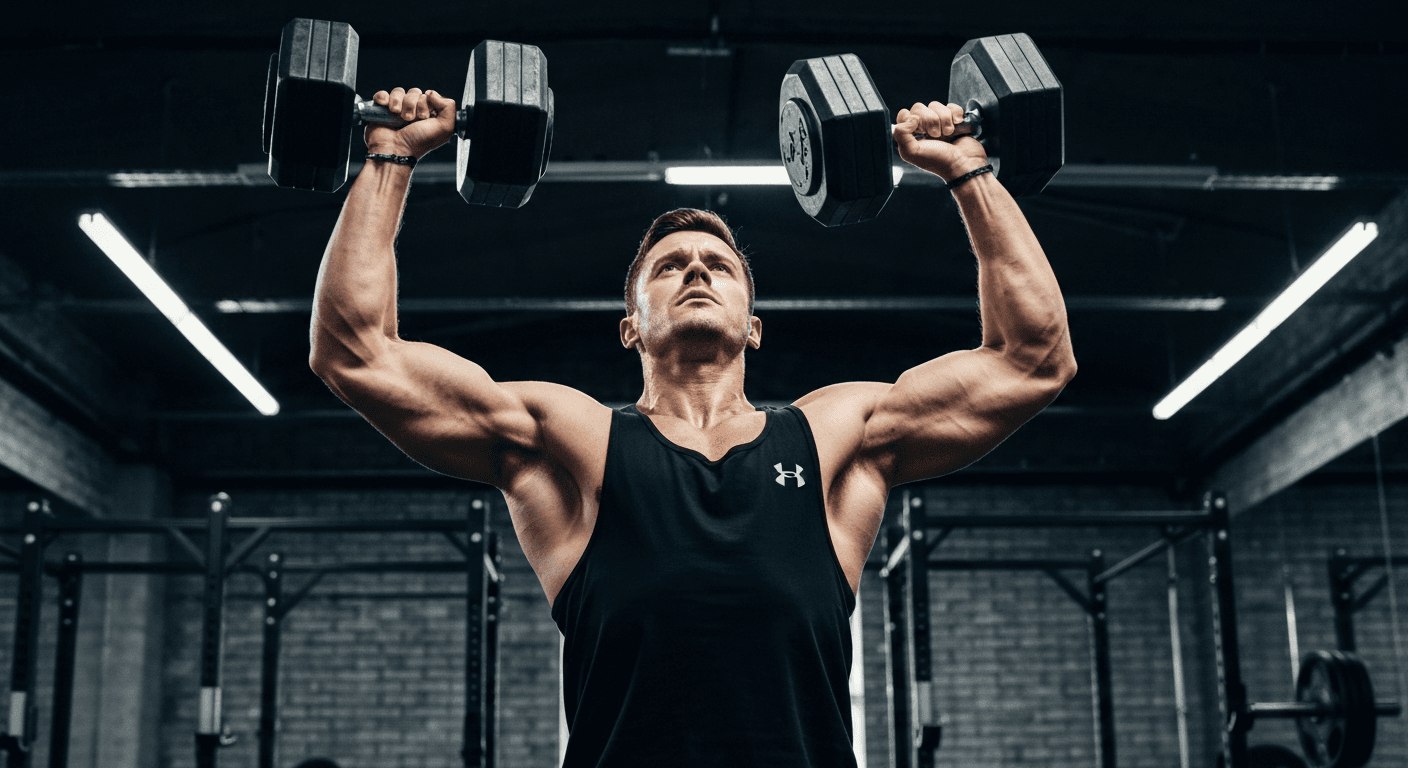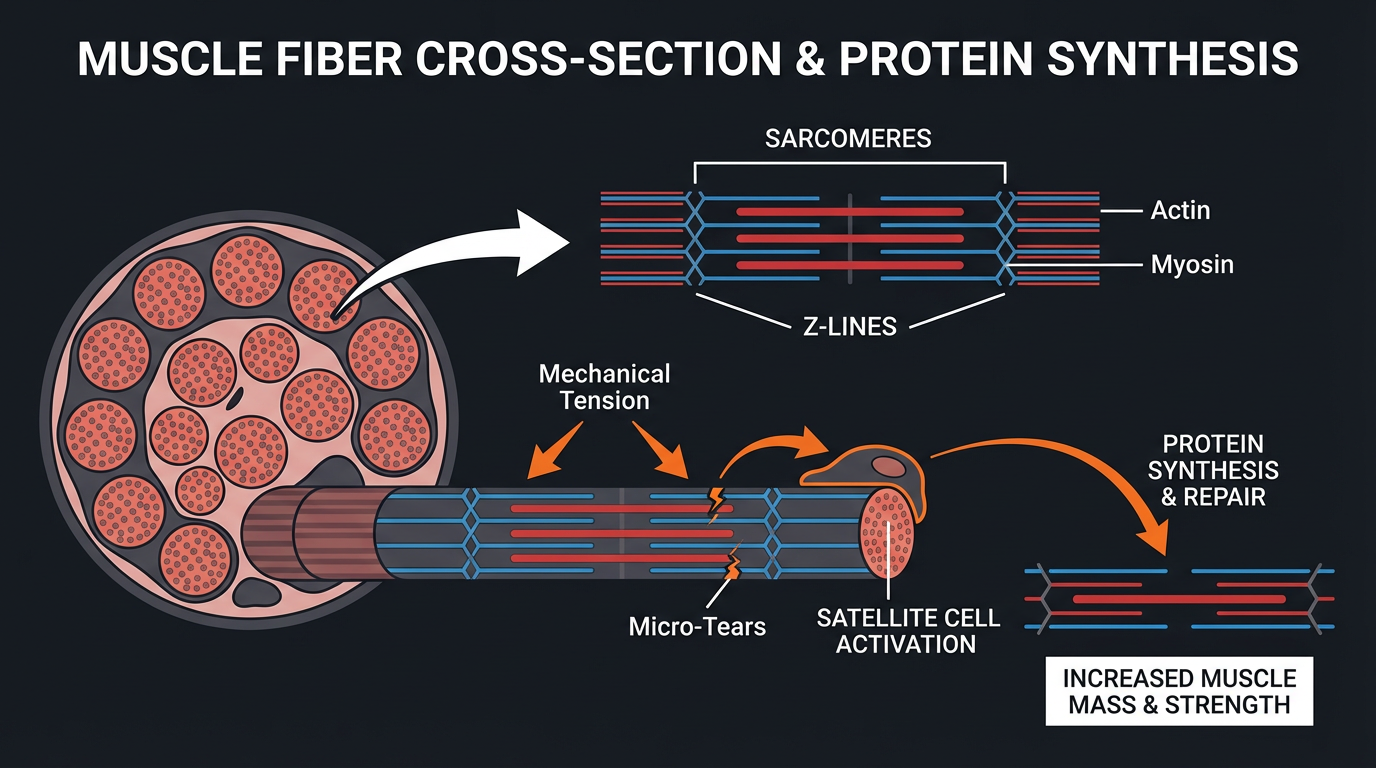The Role of Hormones in Strength Training and Muscle Growth
Read our comprehensive guide on the role of hormones in strength training and muscle growth.

When it comes to maximizing your gains in strength and muscle mass, understanding the role of hormones in strength training and muscle growth is crucial. Hormones act as messengers in your body, orchestrating the complex processes that lead to muscle hypertrophy and strength enhancements. In this comprehensive guide, we'll delve into the specifics of how hormones influence your fitness journey.
The Key Hormones Involved in Muscle Growth
Several hormones play pivotal roles in muscle growth. Among the most influential are testosterone, growth hormone (GH), and insulin-like growth factor 1 (IGF-1). Each of these hormones facilitates muscle hypertrophy in distinct ways:
- •Testosterone: Known as the primary male sex hormone, testosterone is critical for protein synthesis and muscle repair. It directly influences the anabolic environment in the body, promoting the growth of muscle fibers.
- •Growth Hormone: Released by the pituitary gland, GH stimulates overall growth and cell reproduction. It promotes the release of IGF-1, which further enhances muscle growth.
- •Insulin-like Growth Factor 1: IGF-1 works alongside GH to stimulate muscle growth and repair, thereby boosting muscle hypertrophy.

Testosterone: The Anabolic Powerhouse
Testosterone is often dubbed the king of anabolic hormones. A study published in the Journal of Applied Physiology showed that men with higher testosterone levels experienced greater muscle mass and strength gains from resistance training compared to those with lower levels (source). Here's how it works:
- •Increased Protein Synthesis: Testosterone enhances the rate at which muscle proteins are synthesized, aiding in quicker recovery and growth.
- •Reduced Muscle Breakdown: It decreases the activity of catabolic hormones that break down muscle tissue, preserving the muscle mass you work hard to build.
- •Enhanced Neural Adaptations: Higher testosterone levels can improve neuromuscular communication, leading to more effective strength training sessions.
Understanding the impact of testosterone can help you adjust your training and lifestyle to optimize its levels. Factors such as sleep, nutrition, and resistance training intensity all play roles in maintaining healthy testosterone levels.
Growth Hormone and IGF-1: The Dynamic Duo
The relationship between growth hormone and IGF-1 is akin to a duo of superheroes working together to combat muscle atrophy. Growth hormone stimulates the liver to produce IGF-1, which then circulates to the muscles and promotes growth. This relationship was highlighted in a review by the European Journal of Endocrinology (source).
Growth hormone peaks during sleep, making quality rest essential for maximizing muscle growth. Incorporating proper sleep hygiene and a balanced diet rich in protein can significantly enhance GH and IGF-1 levels, contributing to better muscle gains.
Practical Tips for Maximizing Hormonal Benefits
Here are some actionable steps to make the most of your hormonal responses for muscle growth:
- •Optimize Your Sleep: Aim for 7-9 hours of quality sleep per night to support GH production.
- •Focus on Compound Movements: Exercises like squats, deadlifts, and bench presses stimulate testosterone and GH release more than isolation exercises.
- •Eat a Balanced Diet: Ensure you get enough protein, healthy fats, and carbs to fuel muscle growth and hormonal balance.
- •Manage Stress: High stress levels can increase cortisol, a catabolic hormone. Practice stress-reducing activities like meditation or yoga.
Conclusion: Boost Your Gains by Understanding Hormones
Understanding the role of hormones in strength training and muscle growth can give you the edge you need to optimize your workouts and nutrition. By focusing on hormones like testosterone, growth hormone, and IGF-1, you can create an optimal internal environment for muscle hypertrophy. Implement the practical tips we've discussed, and you'll be on your way to maximizing your strength and muscle gains.